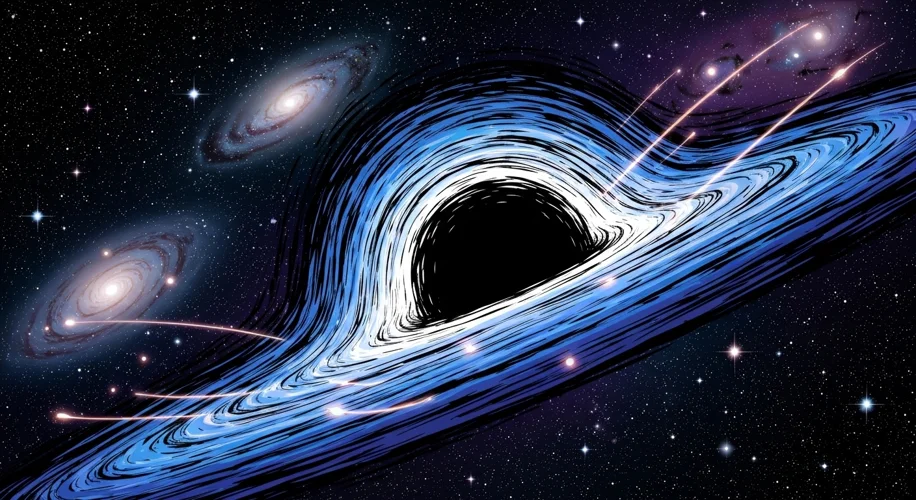Did you know that some of the most mind-boggling mysteries of our universe might be linked by the very same cosmic objects? I’m talking about black holes and dark energy.
For a long time, scientists have been trying to piece together the universe’s story. We know about galaxies, stars, and planets, but there’s so much more we don’t understand. Two of the biggest puzzles are dark matter and dark energy. Dark matter is this invisible stuff that seems to hold galaxies together, and dark energy is what’s pushing the universe apart at an ever-increasing speed.
Now, there’s a fascinating new idea gaining traction: could black holes be involved in transforming ordinary matter into dark energy? It sounds like science fiction, but it’s based on some really interesting scientific thinking.
Imagine a black hole. It’s an object with such strong gravity that nothing, not even light, can escape it. As matter falls into a black hole, it gets compressed and heated to extreme temperatures. What if, under these incredibly intense conditions, something fundamental changes? What if some of the matter that falls into a black hole doesn’t just disappear, but is somehow converted into dark energy?
This concept is being explored by scientists who are looking at data from projects like the Dark Energy Spectroscopic Instrument (DESI). DESI is helping us map out the universe in unprecedented detail, and as we gather more information, our understanding of cosmic forces is getting sharper. It’s similar to how climate scientists use data to refine models of Earth’s systems – the more data we have, the clearer the picture becomes.
If black holes are indeed playing a role in creating dark energy, it could help us solve what scientists call ‘cosmic hiccups’ – those moments where our current models don’t quite match what we observe about the universe’s expansion. It’s like finding a missing piece of a giant cosmic puzzle.
This isn’t about predicting the future or telling you what to do, but it’s about marveling at the incredible ways the universe works. It shows us that even in the most extreme environments, like the heart of a black hole, fundamental processes are at play that shape the cosmos we see today. The universe is always full of surprises, and I, for one, can’t wait to see what else we discover!

